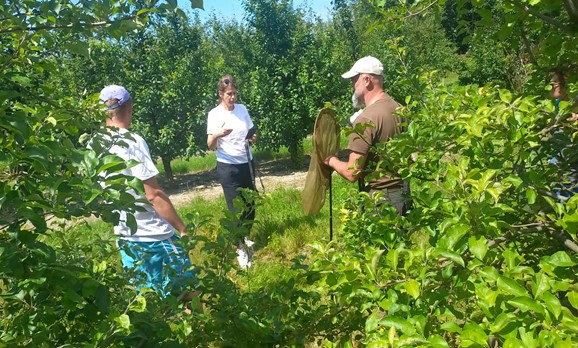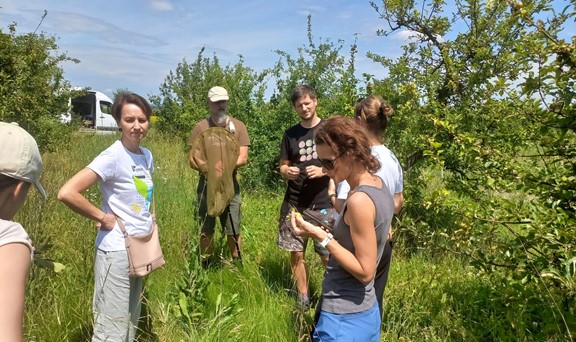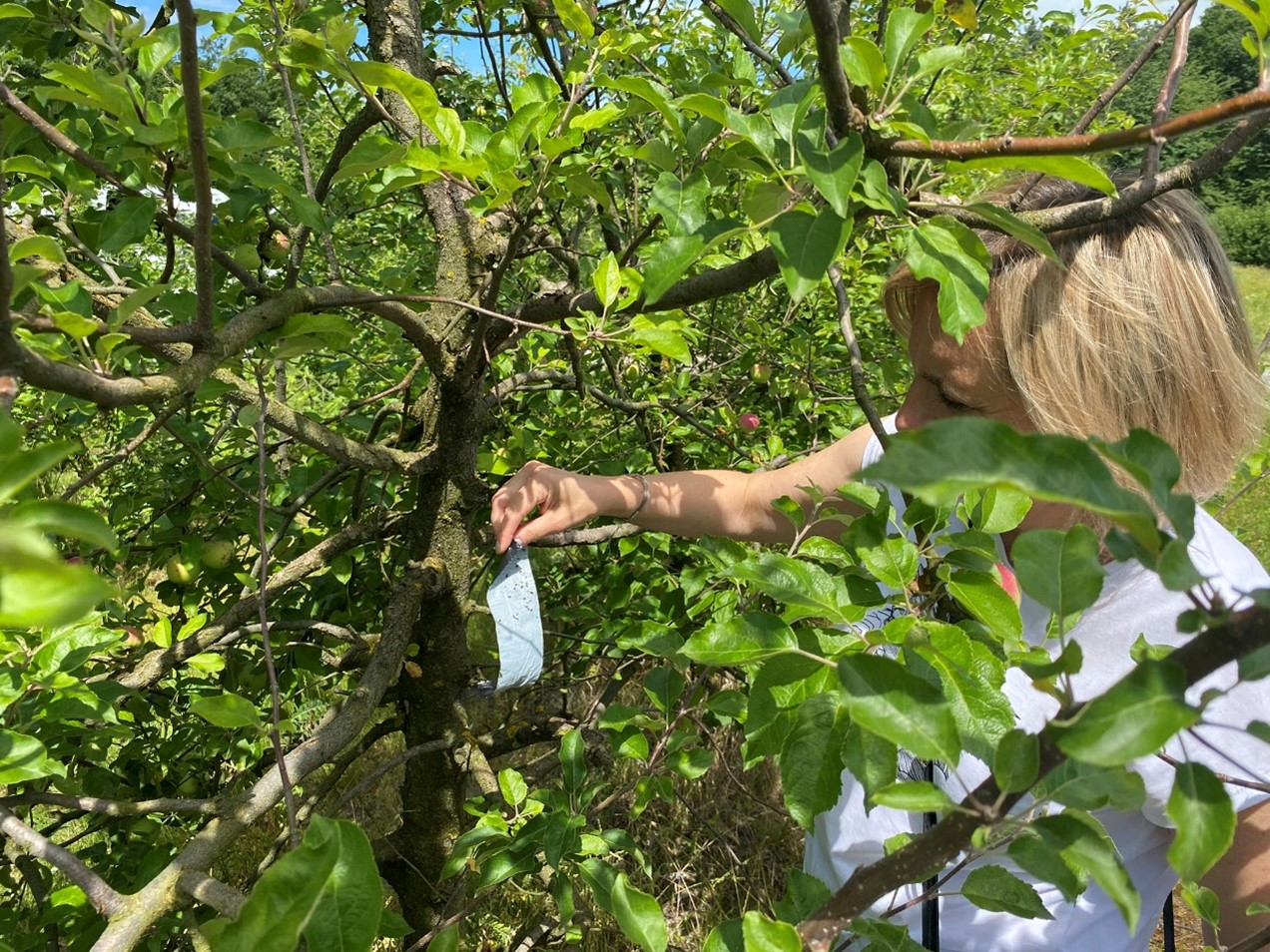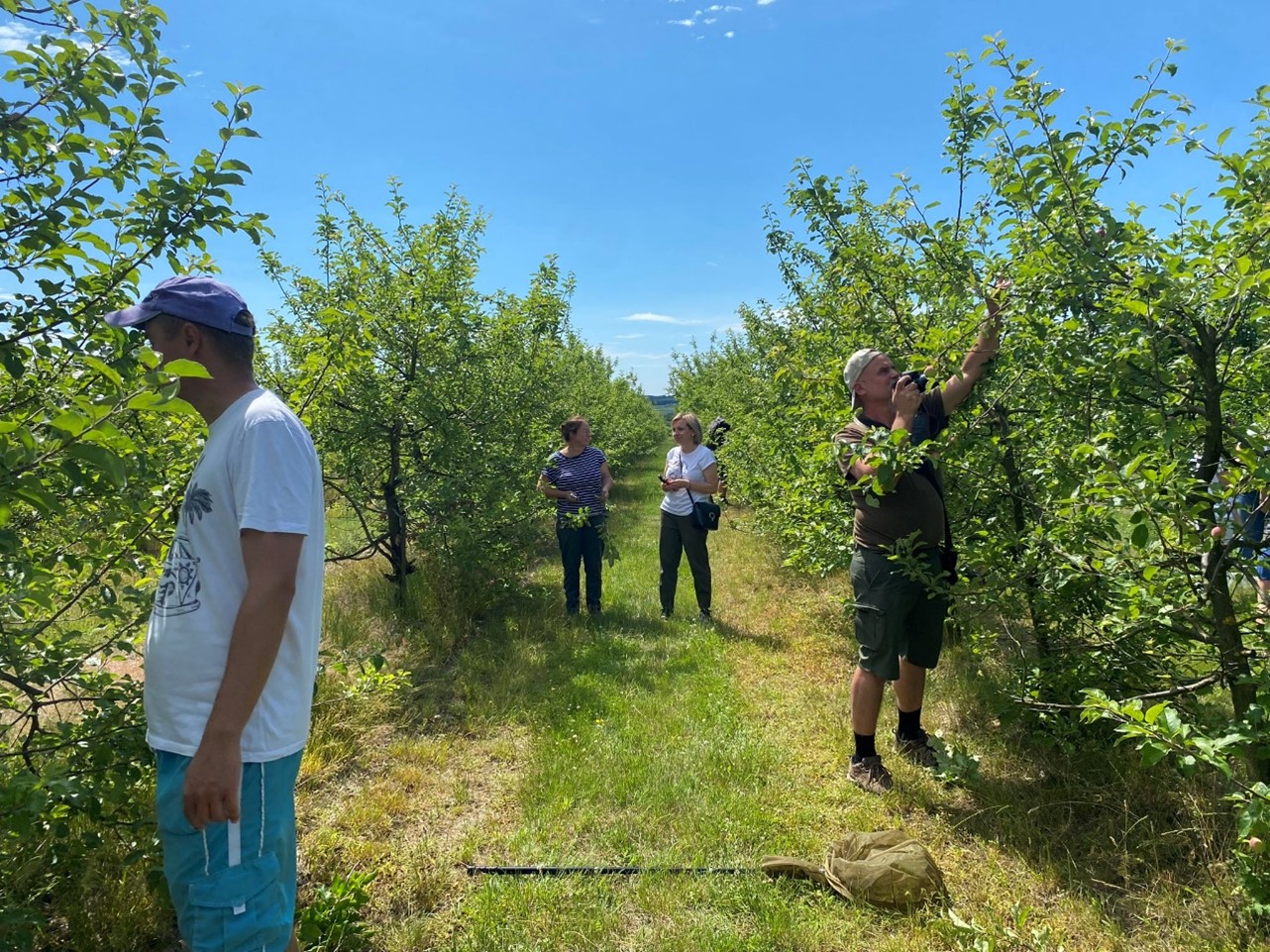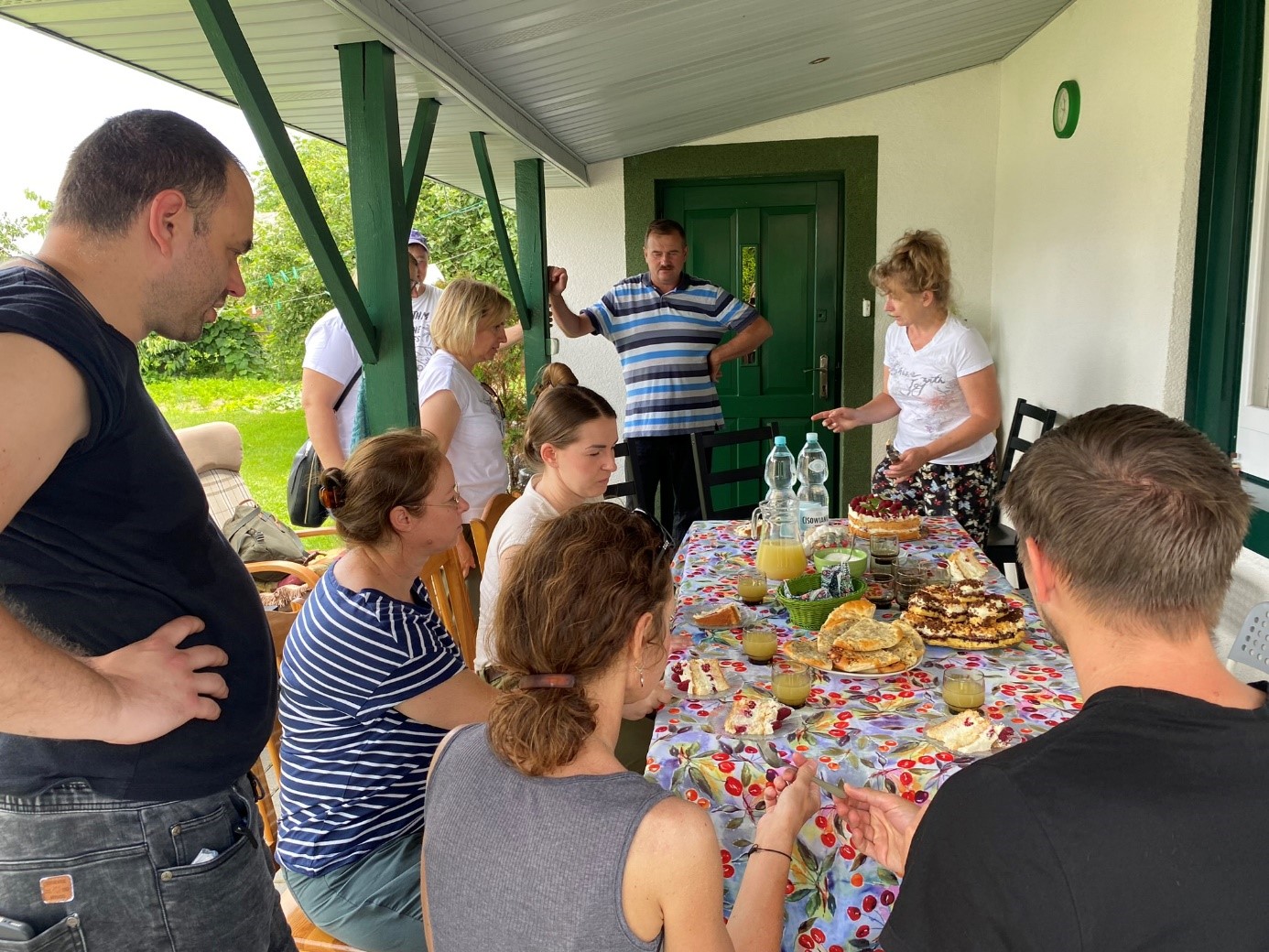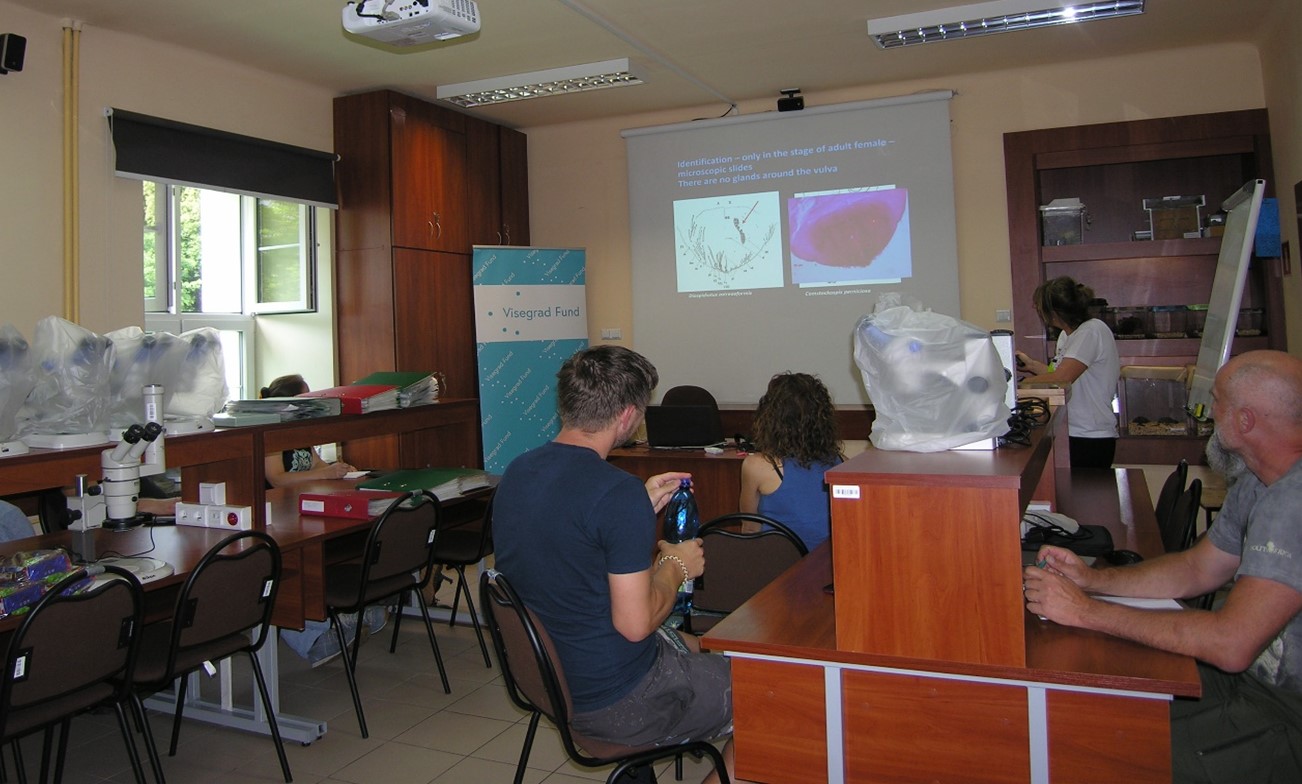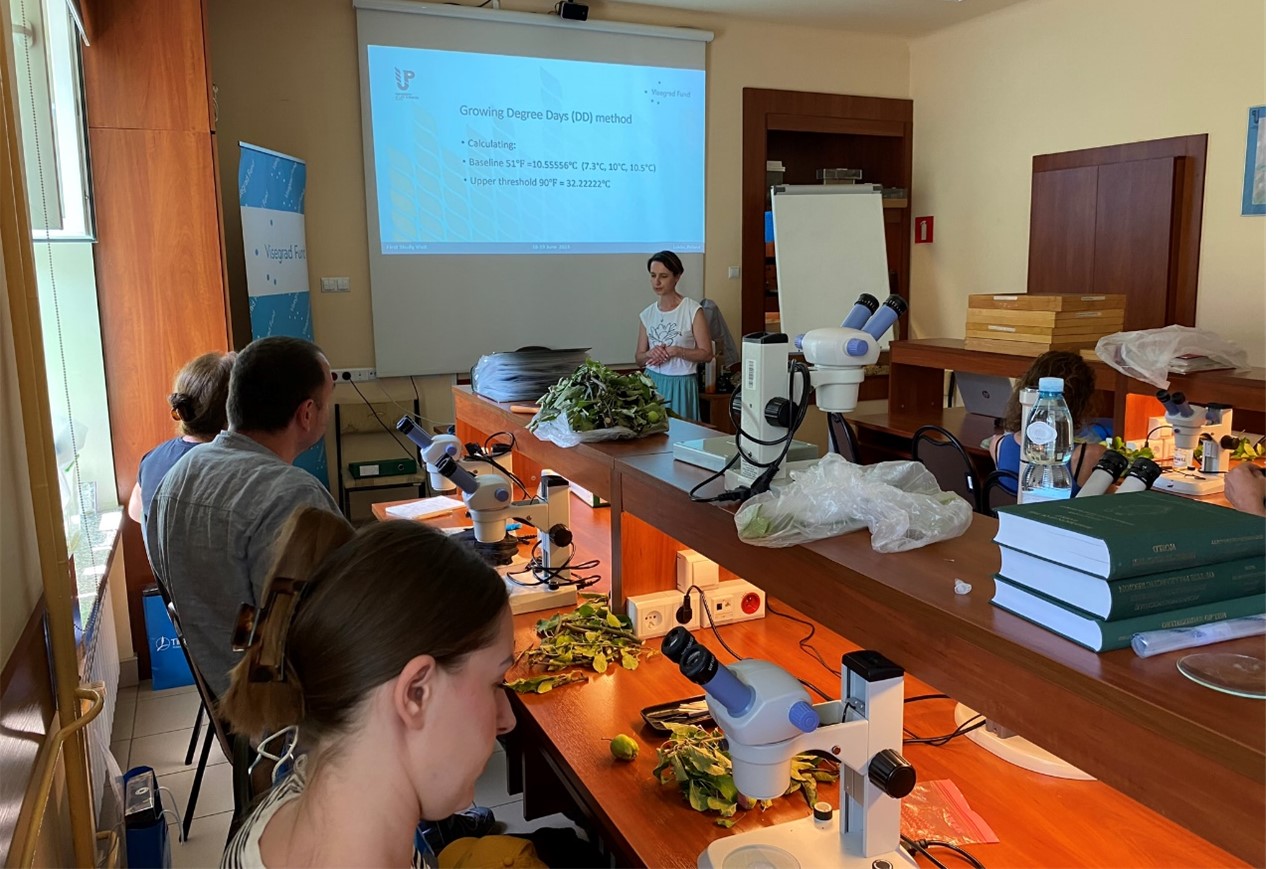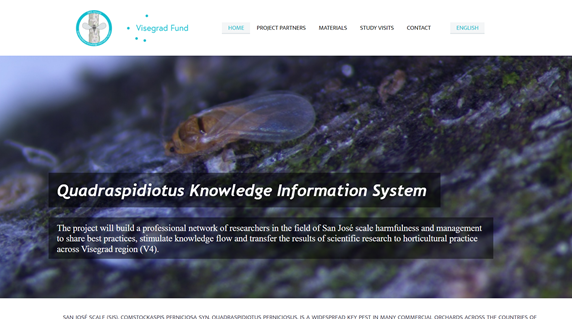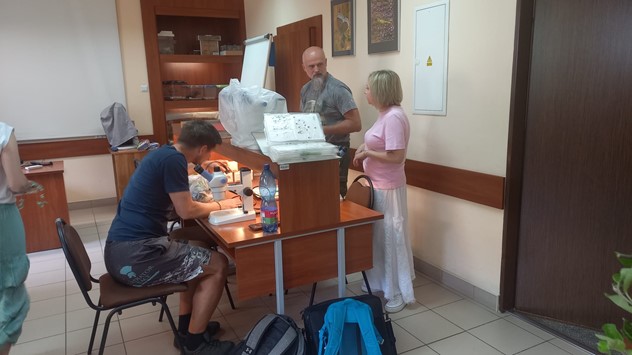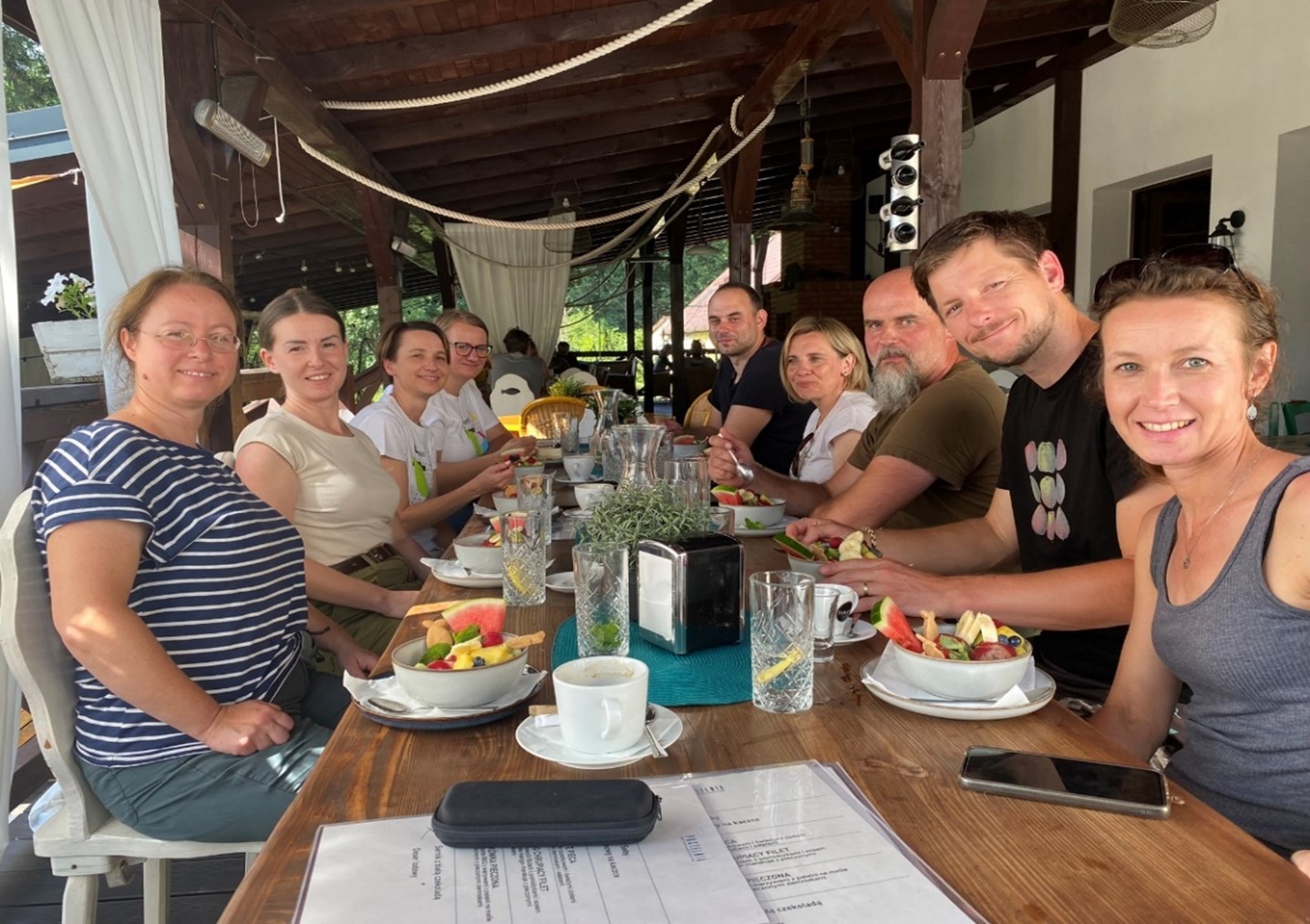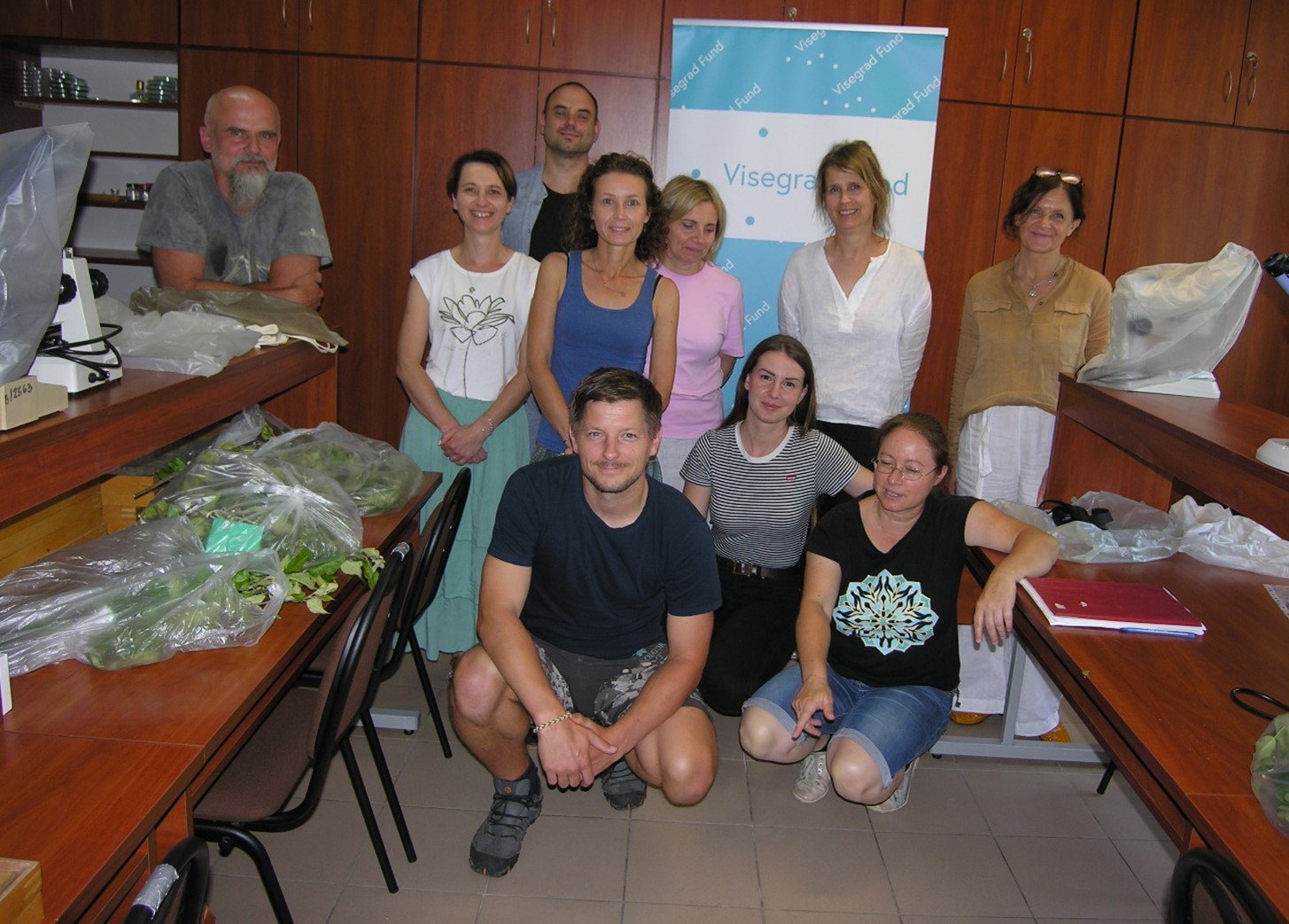
The second meeting of the project “QKIS (Quadraspidiotus Knowledge Information System) network”
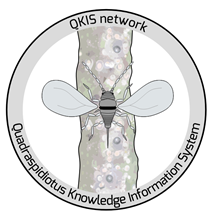
Study visit in Lublin, Poland
On June 18-19, 2024, the first study visit of the project team members “QKIS (Quadraspidiotus Knowledge Information System) network” took place at the University of Life Sciences in Lublin. The hosts of the meeting were the researchers of the Subdepartment of Entomology, Department of Plant Protection:
- Katarzyna Golan– Project Coordinator,
- Izabela Kot,
- Katarzyna Kmieć,
- Edyta Górska-Drabik,
This meeting was the first of three planned study visits, during which Consortium members solve problems related to the San José scale (SJS) invasive pest species occurring in the V4 region.
The meeting participants were representatives of the consortium partners: University of Life Sciences in Lublin (Poland); Biosad z.s. – Association of Fruit Growers in The Czech Republic, Research and Breeding Fruit Institute Holovousy S.R.O. (Vsuo) (Czechy); Plant Protection Institute Centre for Agricultural Research HUN-REN (Węgry) and invited Balkan Partner from University of Belgrade (Serbia).
NETWORKING-DAY June 18, 2024
On the first day of the visit on the Project Partners took part in field trips to orchards located in Opole district (commune: Wilków, Łaziska). During this trip, six orchards were visited. Partners had the opportunity to observe the damage caused by SJS in Polish orchards, collect material for analysis and obtain information regarding orchard farmers’ problems caused by the SJS feeding.
During the field trips Partners had the opportunity to meet owners of fruit farms and became acquainted with the main problems of fruit growers in Poland, discussed about possibilities of monitoring and controlling of San Jose scale.
WORKSHOP-DAY June 19, 2024
During the second day of the visit, practical training took place in the laboratory of the Department of Plant Protection of the University of Life Sciences in Lublin. The meeting began with a presentation by the project coordinator, Ph.D. Katarzyna Golan, Assoc. Prof. concerning the SJS identification, preparation of microscope slides, the morphological features of particular developmental stages and SJS management methods in Poland.
Information related to the degree days () for each developmental stages of the SJS in Poland was presented by Ph.D. Katarzyna Kmieć, Assoc. Prof.
At the end of the theoretical part of the meeting, Ph.D. Izabela Kot, Assoc. Prof. presented a new project logo and website design.
The next phase of the meeting was:
- the analysis of microscopic slides with SJS,
- the analysis of plant material collected in the orchards during the field trips,
- inspection of pheromone traps and sticky tapes for the presence of males and first instar nymphs of the SJS as well as the natural enemies of this pest.
The analysis of the material was accompanied by an exchange of knowledge and discussion on topics related to SJS, its importance and management methods in the V4 region, as well as activities related to the development of the “Practical guide for monitoring and management of SJS in the V4 region”.
During the meeting, key issues related to the implementation of the project were discussed and a schedule of subsequent meetings of the project participants was established.
The meeting participants were representatives of the Consortium Partners:
- Katarzyna Golan, University of Life Sciences in Lublin
- Izabela Kot, University of Life Sciences in Lublin,
- Katarzyna Kmieć, University of Life Sciences in Lublin,
- Edyta Górska-Drabik, University of Life Sciences in Lublin,
- Monika Poniewozik, University of Life Sciences in Lublin,
- Éva Szita, Plant Protection Institute Centre for Agricultural Research HUN-REN (Węgry)
- Gero Kornel (Plant Protection Institute Centre for Agricultural Research HUN-REN (Węgry)
- Kamil Holý, Biosad (Czechy),
- Marija Milošević, University of Belgrade (Serbia)
- Michal SKALSKÝ (Research And Breeding Fruit Institute Holovousy S.R.O. (Vsuo)
- Jana Ouředníčková (Research And Breeding Fruit Institute Holovousy S.R.O. (Vsuo)
The project is co-financed by the governments of the Czech Republic, Hungary, Poland and Slovakia as part of the Visegrad Grants from the International Visegrad Fund. The fund’s mission is to promote ideas for sustainable regional cooperation in Central Europe.
University of Life Sciences in Lublin
13 Akademicka Street, 20-950 Lublin
VATIN 712 010 37 75
REGON no. 000001896
ePUAP: /UP-Lublin/SkrytkaESP
